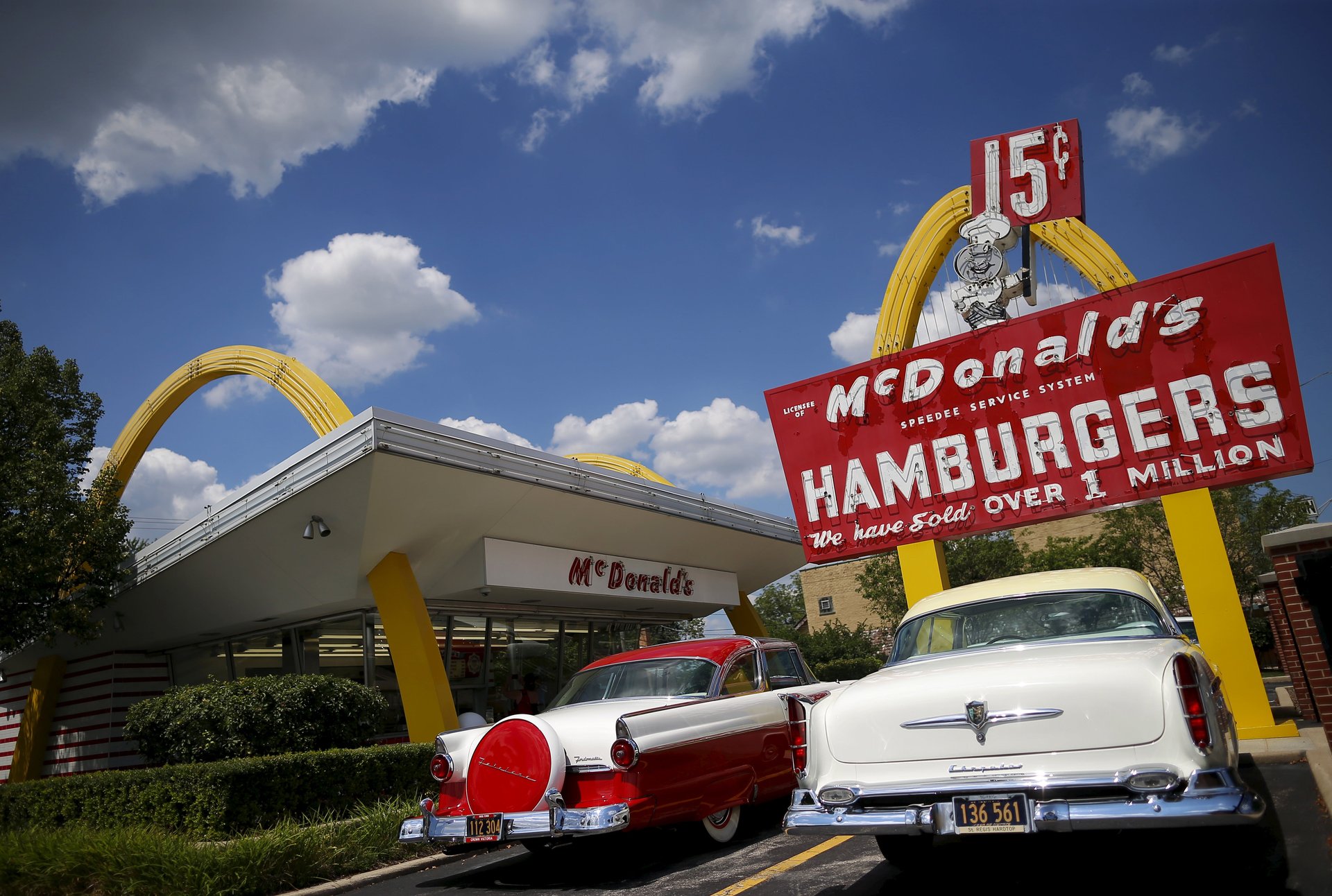McDonald’s just gave doctors a reason to love its restaurants
The biggest single purchaser of beef on the planet is taking steps to curb the use of medically-important antibiotics in its beef supply chain, a decision that has wide-ranging implications on the long-term efficacy of drugs needed to treat human ailments.


The biggest single purchaser of beef on the planet is taking steps to curb the use of medically-important antibiotics in its beef supply chain, a decision that has wide-ranging implications on the long-term efficacy of drugs needed to treat human ailments.
McDonald’s this week said it will start measuring the use of antibiotics by it’s beef suppliers in its 10 largest markets—which includes the United States—and take steps to taper off their use by the end of 2020. That leaves just two years for the company to make a dent in drug use in areas that cover about 85% of its total market.
Food companies for several years now have made curbing the use of antibiotics in animal agriculture part of their missions. There are three types of uses that health experts keep an eye on: farmers using drugs to make animals grow bigger faster, for the treatment of diseases, and for the prevention of diseases. Use of the drugs to promote growth is almost universally frowned upon, and using them to treat disease is universally accepted. Administering them to prevent disease, though, has been a bit more murky.
The problem with the practice is that it often involves including the drugs in animal feed. And when the antibiotics are part of a cow or chicken’s regular diet, the disease-causing bacteria get constant exposure, which gives the tiny creatures an opportunity to figure out how to live with it. Once bacteria get used to an antibiotic, it’s rendered mostly useless when it’s needed to treat a bacteria-caused sickness—including in humans.
When a company the size of McDonald’s announces a policy change like this, it can inspire other members of the food industry to follow suit, creating a snowball effect that will ultimately reduce the use of antibiotics in the food system and incentivize the creation of newer kinds of disease-prevention methods for farmers to use. “Nobody in the world sells more burgers than McDonald’s, and their actions can shape the future of the industry,” said Lena Brook of the Natural Resources Defense Council in a statement.
Another major US retailer, Costco Wholesale Corporation, this week also announced it was strengthening its antibiotic-use policies to restrict farmers from using the drugs for anything other than to treat an animal that has already fallen ill. The firm said it will fully incorporate that policy by the end of 2020.
Since the US Food and Drug Administration began collecting on-farm drug-use data in 2009, the agency has seen the sales and distribution of medically-important antibiotics mostly increase. But they tumbled by 14% between 2014 and 2016, a sign that farms are figuring out how to live without them. The poultry market accounted for about 6% of that decrease, while pork and cattle made up the rest.
The World Health Organization has cautioned governments to set stricter policies about how doctors prescribe these drugs and how farmers use them to manage their herds. Despite that warning, Brook said it’s been the proactive work of corporations making the biggest difference in the fight against antibiotic resistance, not policymakers. Brook said that politicians in DC have been “asleep at the wheel.”
Canada, by comparison, has been more aggressive in regulating the use of drugs on farms. Earlier this month, new Canadian rules went into effect that requires farmers to get a prescription from a veterinarian before they use antibiotics on their herds and flocks. Before, they were able to buy them directly from farming stores.